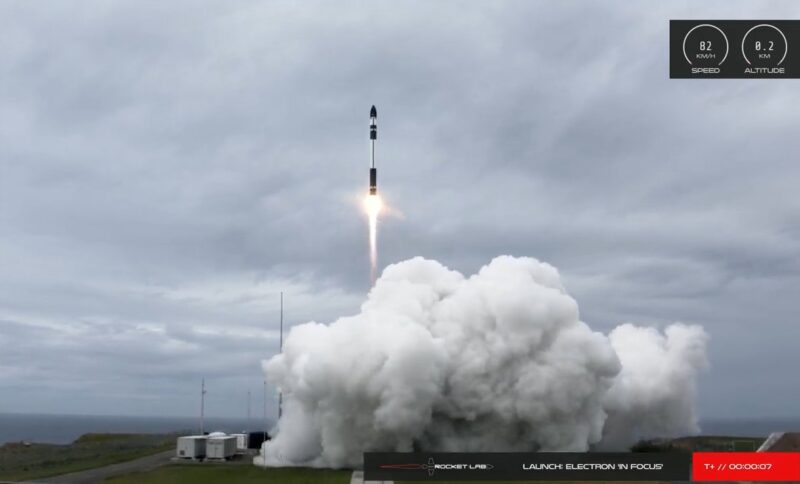Latest News

Rocket Lab’s “In Focus” Electron mission lifts off on Oct. 28. Photo: Rocket Lab
A Rocket Lab Electron vehicle lifted satellites for Planet and Canon Electronics to orbit on Wednesday. In the mission dubbed “In Focus,” Electron took off from Launch Complex 1 in Mahia, New Zealand at 5:21 p.m. ET. The Kick Stage successfully separated from Electron about nine minutes after liftoff. Rocket Lab confirmed payload deployment about an hour after liftoff. The launch took place after a scrub on on Oct. 21 to assess sensor data.
The mission carried a total of 10 satellites, nine Planet SuperDove satellites, and Canon’s CE-SAT-IIB satellite. These are the same type of satellites Rocket Lab lost during the July 4 mission “Pics Or It Didn’t Happen” failed when the Electron vehicle experienced an anomaly after stage separation. Five SuperDoves were lost, along with Canon’s CE-SAT-IB. That mission also lost the Faraday-1 satellite for U.K. space startup In-Space. CEO Doug Liddle recently told Via Satellite that In-Space is working to rebuild Faraday-1, which will be called Faraday-Phoenix. Liddle said it is set to launch on a SpaceX Falcon 9 next June.
The 10 satellites were deployed Wednesday to a 500 km morning-crossing Sun Synchronous Orbit (SSO). Planet’s nine SuperDove’s will join 26 SuperDoves, Flock 4v, that were launched in September on Arianespace’s VV16 SSMS-POC flight.
Canon’s CE-SAT-IIB is a technical demonstration microsatellite. It has a middle-size telescope equipped with an ultra-high sensitivity camera to take night images of the Earth and small size telescopes which are suitable for CubeSat use. The Canon payload was a rideshare arranged by Spaceflight Inc.
“Congratulations to Planet on the addition of their latest SuperDoves to their constellation and to the team at Canon Electronics on the deployment of their latest tech demonstration satellite,” Rocket Lab founder and CEO, Peter Beck said after the launch. “Electron has once again delivered a smooth ride to orbit and precise deployment for our individual rideshare customers.”
Get the latest Via Satellite news!
Subscribe Now